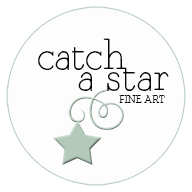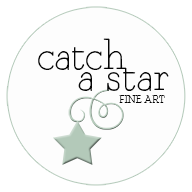What did I just buy? How to buy from ARTISANS on Etsy.
This will be a long article, friends.
This is some info about creative artisans that I'd really like people to understand, so I'm going to get into a little detail!
If you care about buying from small businesses and creative artisans, and like shopping on Etsy, this is WORTH THE READ. Because the odds are good that you are not buying what you think you are buying when you shop on Etsy :/
Like a lot of creative people, I sell my designs in multiple places. A chunk of my sales happen on the Etsy platform.
On Etsy, a seller:
- lists what they make,
- works hard to optimize their shop,
- and maybe makes some sales.
There are no guarantees.
Statistics say that over 65% of Etsy sellers make less than $100 per year from their shop. I'm very, very thankful that I've been pretty successful on the platform.
For years, Etsy was known as being a place where you could buy from artisans and small businesses.
True handmade items, created from start to finish by an independent, creative person. In those years, you could also sell vintage items, and craft supplies, but the bulk of items for sale were handmade. It was easy to find unique items.
* * * * *
In recent years, the rules for who can sell what on Etsy have become a lot more flexible.
Since 2013, sellers have been able to get outside production help in creating their items, and this has really expanded the choices available for customers - for example, I sell a lot of large framed canvas prints, which I design from scratch and customize for my clients, then have printed by a professional company that does an AMAZING job.
You see - I'm a photographer. I use my camera and my skills and my vision to create and edit photos, galleries, and custom graphic designs. That's my skill set.
I'm not a canvas stretcher or framer.
The equipment required to produce 60-inch canvas prints and floating frames would require a big factory to house and employees to run it. That's not the kind of business I want to run. So I'm thankful that Etsy allows outsourcing, because that lets me create more happy customers.
** So - I design the item - my hands and talent are involved from the very beginning of the creative product. The item doesn't exist until I make it exist. **
When it's perfect, I use purchased supplies - whether it's fine art paper in my own professional printer for many of my prints, or the canvas vendor - to finish my vision.
* * * * *
Here's another example, but in reverse: let's say someone's talent is crocheting or knitting. Those people are allowed to purchase yarn from a store and use it to make their crafts. They don't have to shear the sheep themselves, create and dye the wool etc. They CAN, if they want to, but the point is that person uses THEIR HANDS and their skill to create the final product.
In both of those examples, you can see where the artisan is involved in the process.
* * * * *
But these days, there are many Etsy sellers who aren't involved in the creation of what they sell in any appreciable way.
Stories abound of Alibaba items repackaged and sold on this 'handmade' platform, and that is not supposed to happen. It's so prolific now that it's estimated that 70% of sellers are reselling stuff they bought, with just 30% being artisans.
* * * * *
So, why should you care? Maybe you don't. I suppose, even if you're buying items that a seller just bought in bulk and repackaged, you are still 'supporting a small business.' (In a really lame, half-assed kind of way, but my bias is showing :D )
But I think a lot of people really WANT to buy from actual artisans, but the way Etsy is set up now makes that really hard to do. You might THINK you're buying from a creative person, because the perception is that is what Etsy is all about. It's what all their marketing says.
If you're interested, here's a great article explaining the Etsy rules on what can and can't be sold, and what 'handmade' means.
* * * * *
As a photographer who sells ONLY images that I created with my own camera and vision, I am trying to market against sellers who have gone to stock photography sites, purchased images, edited them and put them into mockups, and then listed them in their Etsy shops.That's the "Alibaba" version of photography sales on Etsy.
Those sellers HAVE NOT:
- invested in professional equipment
- studied photography
- worked hard to create unique images
- perfected printing techniques to ensure they deliver top quality images to their customers that they can't get anywhere else.
It's just not the same thing.
But in search results, those repackaged stock images will show up right next to my custom created work.
And I'll show you just how that looks.
* * * * *
If you DO care about buying from an artisan, you can learn to determine if a shop is creating, or reselling by looking closely at search results and store details.
So let's try this out.
Go to the Etsy main page, and in the search bar type in "lifeguard tower prints."
Here's a few photos of what I found just on the very first page of Etsy results for that search.
The images circled in red are ALL THE SAME IMAGE, sold by a number of different sellers, * none of whom are responsible for taking the photo. *
It's a purchased (stock) image that a number of sellers bought, edited, and packaged for sale - usually as digital downloads.
Many of the other photos on this page are also stock images - I'm just focusing on this ONE image that is shown multiple times.
(The images with the green check marks are mine.)




Since these stock images come up in a search for 'prints' and are mixed in with images created by someone like me, it can be hard for the average shopper to know what they are buying.
Are they getting something unique that they can ONLY get from a specific shop / photographer? Or are they getting a stock photo that the seller bought themselves somewhere for $15 and is reselling? Are they getting an actual print or canvas mailed directly to them? Or are they getting a downloaded digital file that they then have to figure out how to print themselves?
You can do this little test all day long on Etsy and come up with similar search results, with multiple duplicate stock images for sale - and here and there the work of a true photographer pops up.
* * * * *
So, how CAN you tell if a seller is reselling stock images, as compared to being an actual photographer producing unique art?
Here are a few tips:
* LOOK CAREFULLY AT SEARCH RESULTS
As I've shown above, if you look closely at your results and you see the same image, with slight differences in editing, offered by many different shops (the shop name is right below the price) - it's a stock photo.
* LOOK AT THE SHOP NAME.
It's not a hard and fast rule, but a lot of shops with words like 'print shop' or 'house of art' or 'wall decor' in the name have often proved to be resellers when I've looked closely at their shops. Photographers often use their name, or a unique moniker rather than vague 'print' terms.
* VISIT THEIR MAIN PROFILE PAGE
Scroll down, past the first page of listings and past the reviews. There you'll find the 'about' section, and most photographers will outline their background in this area. In reseller shops, a lot of times there is no shop owner name listed, and/or no info in the about section. Often, reseller shops will say things like "we are always looking for inspiring art to expand our collection", or "we sell printable wall art" - they don't talk about actually TAKING the photos, because they didn't.
* CLICK ON THEIR PROFILE PICTURE
Again, in this space a lot of photographers will give a little background about themselves and their history with photography. For resellers, many times there is just a name or company name, no other info.
* DO THEY *ONLY* OFFER DIGITAL DOWNLOADS?
Once again it's not a hard and fast rule, but if a shop ONLY offers the prints in digital download form - which you need to print yourself with additional effort and cost - they are likely to be a reseller. Most photographers, even those who have digital downloads as an option, will offer hard copy prints which they produce and send to you. We want you to get the BEST quality print for your home and we know that we can provide that with our professional equipment and vendors. (More info on DIGITAL DOWNLOADS coming soon in another BIG blog post!)
* ASK
If you're not sure from looking at the above, and you want to know if you're buying from an actual photographer, send them a message using Etsy's message system (click on it right from the item or profile.) Ask if they took the photos themselves. Ask ME, I'll happily give you my opinion based on a review of their shop and online presence! Alternatively, you can do a google image search using one of the listing photos and see if it comes up offered by many different sellers.
* * * * *
This example is for prints, because photography is what I know and what I sell. But the same is true all across Etsy.
There are people who actually crocheted that cute hat you want for your baby, and there are people who are selling a crocheted hat they bought in bulk on Alibaba.
There are people selling stickers they designed and/or manufactured themselves, and there are people selling stickers they bought in bulk somewhere.
There are people painstakingly creating new jewelry designs to sell in their shops, and there are people buying premade bulk items and listing them for sale.
And PLEASE UNDERSTAND - if you buy DISNEY stuff on Etsy, it's illegal. Even if it's handmade, it's illegal. Why? Because Disney charges mucho dollars to use anything Disney-esque on products. A LOT of money for licensing.....No small seller can afford Disney's trademarking fees. Yes, ILLEGAL items on Etsy is another post entirely, and I'll get to that one too - NASCAR, Disney, big brand names, probably not being sold legally.
* * * * *
Many of us hope that Etsy will somehow stop this overwhelming reseller atmosphere, but to be honest the horse is out of the barn and it's hard to see how it could be put back in.
Artisans in all fields can't compete with reseller prices on bulk-purchased goods - we all know that.
And those cheaper items sell - sometimes because people don't understand what they are buying - and Etsy makes money. So then Etsy shows those items higher in search results because they're likely to sell again.
* * * * *
I hope this (long) article has given a little insight on how Etsy works, and how you can mindfully use it to purchase actual handmade goods if you want to.
It can still be done if you want to support a photographer, a knitter, a crocheter, a jeweler, or any other artisan!
Thank you for reading, and thank you for considering shopping with artisans in mind :). It makes a big difference in our lives, in our families, and in our communities!



Leave a comment